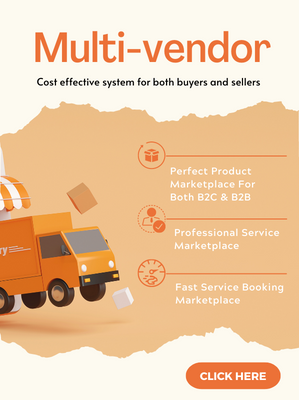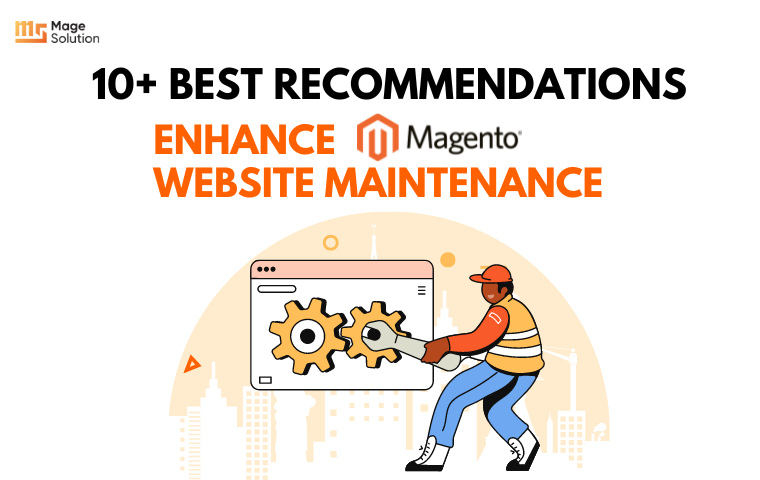B2B eCommerce, or business-to-business electronic commerce, stands for online order transactions where both parties involved are businesses. To succeed in the industry, you need meaningful foresight and careful planning. The planning phase in question is very important because to start an online B2B business, you need an eCommerce platform that is fine-tuned for the industry’s unique demands. This post will provide you a detailed insight into the significance of the B2B eCommerce platform and how to select the right platform for your business.
How to identify the Best B2B eCommerce Platforms

There are a lot of elements that overlap between B2C and B2B selling. Whether you’re selling to a business or an end-customer, you’re going to need a strategy for creating relationships with your potential customers. This means investing in tools like landing page builders, email marketing, and even social media integrations.
You also need to make sure that you have a reasonable way to process transactions and fulfill orders. This means choosing a b2b eCommerce platform that delivers a trustworthy, (secure) checkout, alongside things like shipping rates for your online website, and inventory management. However, B2B eCommerce also comes with big challenges that need to be considered.
- Offer digital services? If so, you need a B2B commerce platform that supports you to access plugins for downloads and even generate memberships for your clients.
- Offer consultations and quotes? This could mean that you need to include a booking form to your online store, as well as easy-to-use contact systems.
- Deliver recurring subscriptions? This will mean that you need to provide your b2b customers an easy method to reorder their services and products on a regular basis.
- Do you sell on multiple channels? This means you need software for your B2B eCommerce store that comes with order management across a range of systems, including social media.
- Provide wholesale offers: This could mean investing in automated systems that estimate discounts for bulk orders and calculate suitable shipping rates.
To save you some important time and effort in the hunt for the right eCommerce capabilities, we’ve collected this list of our top B2B eCommerce website builders and tools.
B2B Ecommerce Platform Comparison
1. Magento – best B2B ecommerce plaform
Magento is generally an on-premise platform tailored to organizations with a dedicated IT or development team. However, if you use Magento to its fullest extent, you’ll have the ability to develop a B2B eCommerce store over which provide full control. You’ll be able to use all those B2B-focused functions on your website and tailor it all to your clients’ requirements.
Or if you don’t currently have the need to go “all-in,” Magento is scalable, as well. As long as you have the ability to get up and running with the platform, you’ll then be able to utilize it more and more as you grow.
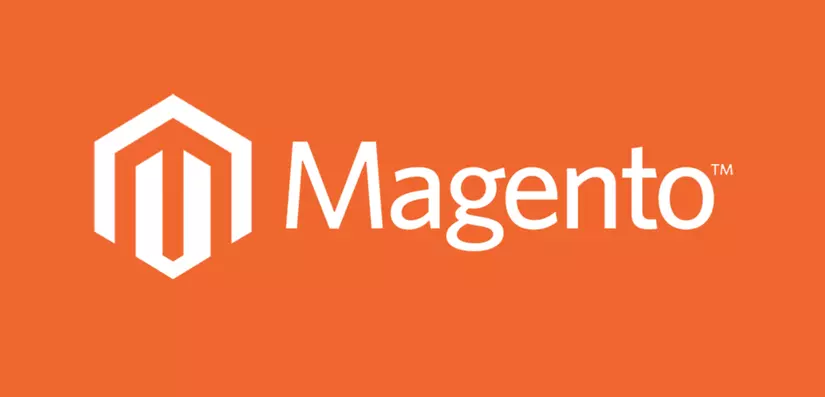
Pros
Magento Commerce (formerly Enterprise), being an industry leader, provides 100-inbuilt B2B functions including the following:
- Comes with a reliable and cloud-based eCommerce solution
- Offer comprehensive native B2B functionality
- Comes with personalized buying experiences
- Offers the option of custom catalogs and pricing
- Powerful merchandising
- Single platform for both B2B and B2C
- Effortless integrates with backend systems
- Support of corporate accounts
- Friction-free ordering
- The ability of multi-channel selling
- Easily management and detailed reporting
- Allows quoting and negotiations
- Optimized inventory and order processing
- With Magento, you can simultaneously control both B2C and B2B e-commerce websites, resulting in constant eCommerce web development of your business and a boost in profits.
Cons
- Magento is not for everyone. It cannot be solved by someone who is not tech-savvy or a programmer and does not have a team.
- The next weakness is the hefty price tag; the basic version is free. However, to have an enterprise version, you will have to pay at least $20,000 annually. If you do not have a team of developers, you will have to pay third-party programming costs.
Pricing
Magento Development is an effective B2B ecommerce platform for an enterprise-level website that possesses a vast amount of products. It is not suggested for SMBs because it is complex to set up, costs a lot, and needs highly-technical management.
2. Shopify Plus
Shopify, one of the leading B2B e-commerce platform currently powers nearly a million online businesses. Shopify Plus is now being used by Citizen, Tesla, Motorola, Adidas, and L’Oreal, to conquer B2B business.

Pros
Following are the main strengths that you will get a B2B business if you use Shopify Plus:
- Can Launch multiple online stores from a single backend or with different URLs
- Dedicated storefronts for global eCommerce
- 24/7 e-store performance
- 20 sales channels are set up directly into merchants’ dashboard
- Provides advanced custom pricing capabilities
- Automated taxation provided by using Avalara
- Manages up to 8,000 orders per minute
- 1500+ built-in apps
- SSL Certificate (storefront and checkout)
Cons
- The most prominent weakness is the additional transaction fee that is applied if you don’t use Shopify Payment.
- Shopify’s coding language, Liquid, require you to pay an incremental price for customization.
Pricing
If you are a startup in the business that needs a conventional B2B ecommerce platform, then you can benefit from Shopify. It is relatively effortless to use and helps in reducing the time-to-market. You can select from different packages ranging from $29 to $299 per month, depending on your requirements and budget.
3. WooCommerce
WooCommerce is as robust as Shopify Plus, but it provides you more control over your eCommerce website and there’s less IT infrastructure required.
Unlike other B2B ecommerce platform in this list, WooCommerce is a plugin for WordPress that offers powerful functions to help you build, manage, and develop your eCommerce store.
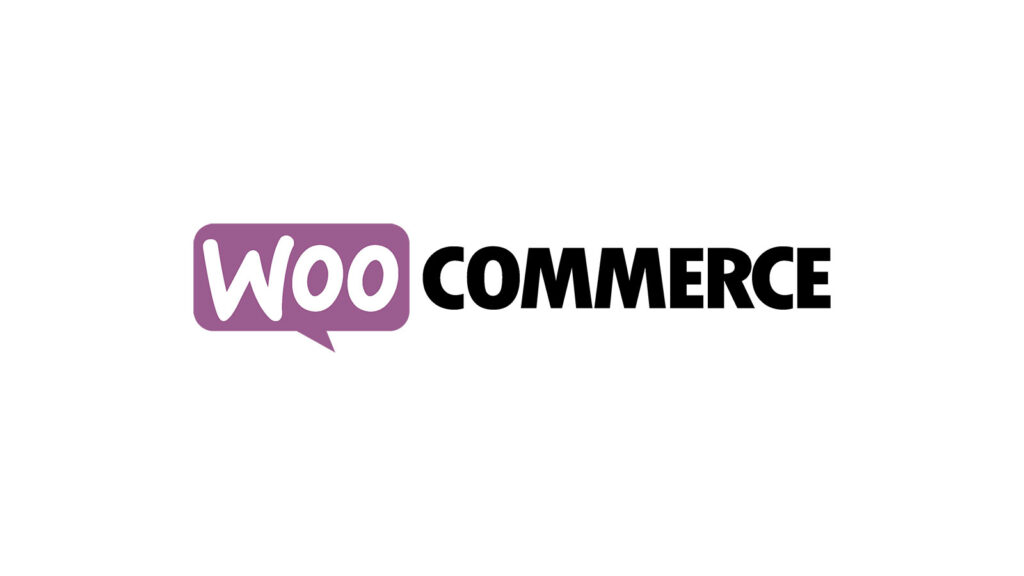
Pros
- If you are familiar with WordPress, using WooCommerce B2B ecommerce platform will be very convenient for you.
- You get access to a various selection of plugins and extensions to enhance the functionalities of your eCommerce store.
- There are tons of both free and paid templates available.
- WooCommerce is powered with in-built SEO features. Besides, you can also integrate external SEO plugins, such as Yoast SEO.
- WooCommerce allows you to enable one-page checkout to streamline the B2B buying process.
- You can customize any part of your online stores, such as the homepage layout and the buy button.
- It has built-in blogging functions to help you publish great content and improve your visibility in the search engines.
- With WooCommerce, you can detect the location of the clients automatically and adjust the tax and shipping costs immediately
Cons
- WooCommerce’s analytics isn’t as robust as other B2B ecommerce platform
- There’s no phone support available, only email. Besides, there’s no central support – every theme, plugin, and hosting comes with different support channels.
- Costs of eCommerce platforms built on WooCommerce can quickly spiral out of control as each plugin can have its own annual costs and when you consider that the average eCommerce site can have as many as 20 plugins, this can make a significant cost impact to any business
- WooCommerce isn’t available on a standalone basis which means that you must have the base WordPress installation and that means that the kind of features and tools available to you is limited not just by WooCommerce but also WordPress
Pricing
Just like Magento, WooCommerce is a free B2B ecommerce platform to use, but you have to pay for the cost of development, domain, hosting, support, etc. Bluehost provides an exclusive price for WordPress + WooCommerce at £10.73 per month (£3.62 per month for new clients for the first term) for 100 GB storage.
4. BigCommerce
BigCommerce is a leading B2B ecommerce platform that comes with a decent level of scalability to the store owners with more built-in sales tools in BigCommerce than any other B2B ecommerce platform. However, many of these can be complicated, making them hard for beginners to use. So, if you’re beginners to eCommerce or don’t have the technical knowledge, you BigCommerce may not be suitable for you.
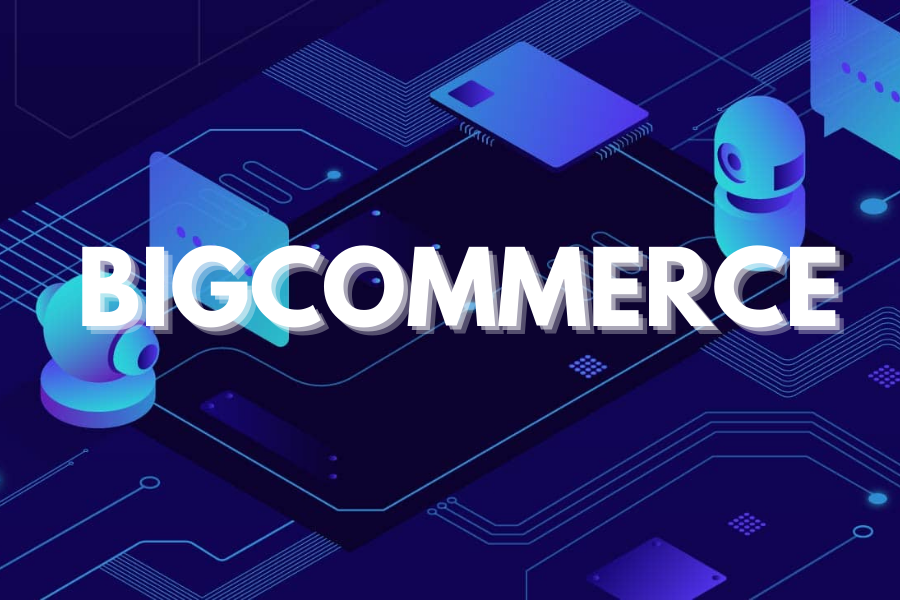
Pros
- Several built-in functions for sales and marketing.
- You get access to over 600 apps to select from in the BigCommerce app store to extend the functionality of your eCommerce store
- BigCommerce comes with 24/7 phone, email, and live chat support.
- It allows you to customize the URL, edit robots.txt, and Metadata to enhance your site’s ranking in the SERPs.
- You can segment your clients for pricing, product access, and promotions on a single site.
- It enables you to give B2B clients a B2C level experience with custom pricing at the SKU level. You can even customize bulk pricing for individual customers.
- It provides an in-built blog so you can take the benefits of content marketing without any third-party app or tool.
Cons
- The complexity of the platform makes it unsuitable for beginners.
- There’s a limit on annual online sales on each plan.
Pricing
BigCommerce provides a 15-day free trial post which you have to pay monthly. BigCommerce offers four plans.
- Standard Plan – £23.03 per month – £40,000 annual sales limit.
- Plus Plan – £55.33 per month – £120,000 annual sales limit.
- Pro Plan – £172.98 per month – £320,000 annual sales limit.
- Enterprise Plan – It has custom pricing and is available on request.
If you exceed the annual sales limit, you’ll be forced to upgrade the plan to continue accepting more orders. Hence, make sure to select a plan based on your annual sales revenue.
5. Salesforce B2B Commerce
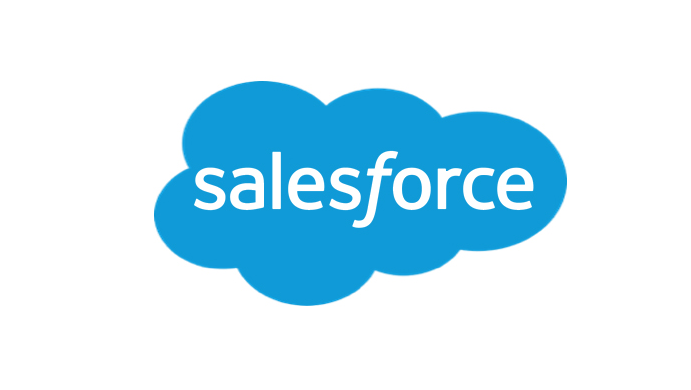
Salesforce is a cloud-based eCommerce platform that is being used recently by more than 190 companies across the globe. Some of the big brands are Adidas, Barneys New York, Brooks Brothers, Crocs, Ecco, FILA, Kate Spade, L’oreal, Lancome, New Balance, Panasonic, and more.
Pros
The following are the advantages that you will get as a B2B merchant while choosing SalesForce as your B2B eCommerce solution:
- LINK partners can help with design, marketing, merchandising, and many other value-added services
- Cloud-based platform mitigates the risk of lost data and is well accessible
- The flexibility that assists optimal speeds even at peak traffic times and built-in redundancies and disaster recovery solutions caused by high traffic website crashes
- Responsive web design allows your eCommerce website adapts to any device
- Advanced SEO and marketing tools such as customer segmentation and grouping capabilities
- Provides online classes and in-person training to instruct clients on using and managing their site
- 24/7 customer support included
- Oversees/monitors security and performance levels
Cons
- Expensive for an eCommerce solution and also requires additional costs. eCommerce businesses have to pay a commission or licensing fee for every sale.
- Much of the website’s control is in the hands of SalesForce and its partners
- Required overage fees if you sell more than your contracted amount for the period
Pricing
SalesForce is an ideal B2B ecommerce platform for large-sized, enterprise-level merchants looking for an all-inclusive, customized B2B eCommerce solution. If you’re tech-savvy and understand your method around code, then the SalesForce system is a suitable solution for you. However, its real power lies in its unique LINK partner program. Through this program, customers can choose any number of value-added services for the enhancement of their eCommerce website
To provide a better shopping experience for your clients, select a reputed B2B eCommerce website development company. They understand your business requirements and provide you the best solution to make your business a success.
